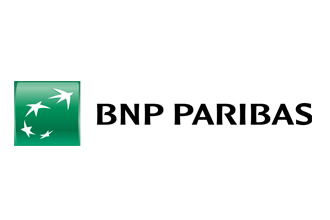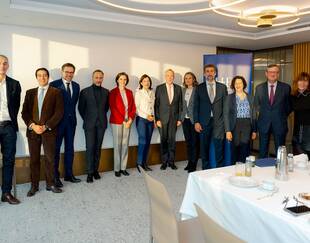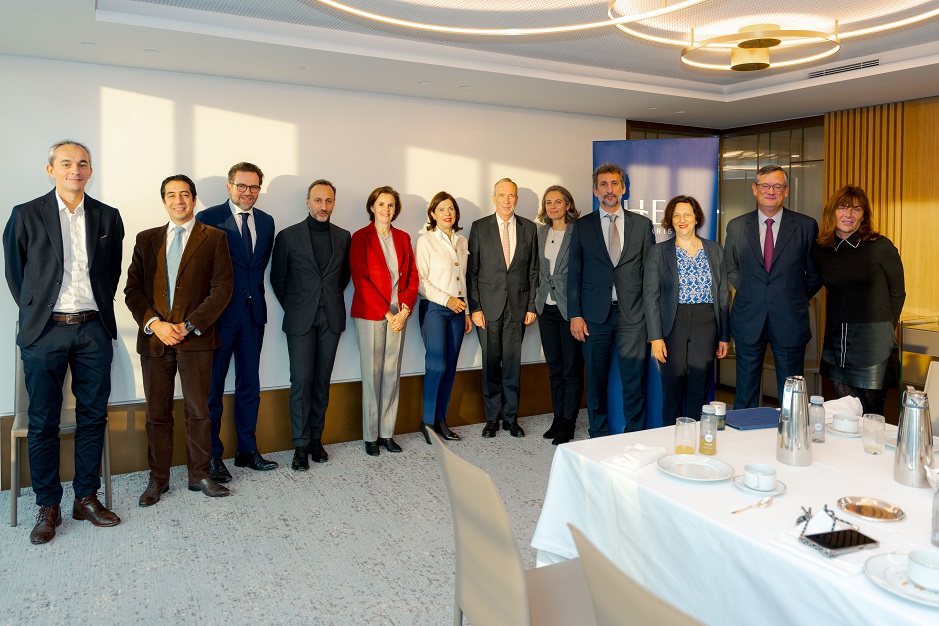Chaires d'enseignement BNP Paribas
BNP Paribas
Corporate Initiative
executive director: Pascal Quiry, Professor (Education Track), Finance Department

On the HEC campus, BNP Paribas has associated its name with one of HEC's top professors and benefits from its image.
Pascal Quiry was elected:
- best teacher in 2013 in all programs combined,
- best MBA teacher in 2012 and 2014,
- "most thought provocative teacher" in 2014,
- finalist in 2015 and 2016 for the title of best teacher in all programs.
He was the pioneer at HEC Paris, from 2014, in teaching by MOOC ("Finance" theme)
Pascal Quiry is also in charge of the M1 corporate finance courses at the Grande Ecole and favours BNP Paribas executives to give courses at HEC.
The BNP Paribas Chair has made it possible to produce original teaching materials:
- 3 MOOCS (financial analysis, company valuation, investment and financing choices) followed by 70,000 people since 2013 in French, English and Chinese
- "Vernimmen", the first finance book in the French-speaking world (10,000 copies sold / year). Annual update for the French version and triennial update for the English version. BNP Paribas and Exane are the exclusive banking providers of financial data.
The future of finance: Interview of Sophie Javary and Pascal Quiry
Discover the interview between Sophie Javary (H.80), Vice-President of BNP Paribas Investment Bank and Prof. Pascal Quiry (H.84), Professor of Finance at HEC Paris and Director of "The Future of Finance" Chair.
Why is the BNP Paribas-HEC Paris teaching chair called "The Future of Finance"?
Sophie Javary: We decided to rename the BNP Paribas-HEC Paris teaching chair "The Future of Finance" because we wanted to place it in a more general framework, incorporating sustainability issues in a more comprehensive way.
The renewal of the chair will include the creation of an "Ethics & Compliance" elective course and support for research through the HEC Paris Center for Impact Finance.
The financial sector is increasingly mobilizing around sustainability issues and promoting the use of capital for more sustainable activities. This trend is driven by a growing awareness of environmental, social and governance issues among investors, customers, employees and the general public.
Training students in these subjects prepares them for this constantly changing landscape governed by new international regulations and standards.Understanding these issues is key to identifying and managing the associated risks, but also to opening up new avenues for innovation and investment, and enabling finance to play its part in the changes underway and the need to finance the transition to a more sustainable world.
Pascal Quiry: Because BNP Paribas is the bank of a changing world! When the chair was created when I left BNP Paribas in 2012, corporate finance as its initial focus, was natural given what had been my core business (M&A) and my courses at HEC. Since then, other BNP Paribas entities, such as third-party asset management and compliance, have found this chair at HEC Paris of interest. So it's only natural that we should draw the necessary conclusions and adapt its name.
Can you remind us of the objectives of this chair?
SJ: BNP Paribas has been associated with HEC Paris since 2012 through this teaching chair. Many banking professionals teach finance at HEC Paris and we are committed to maintaining this tradition.
The main objective of this chair is to promote a close link between the academic world and the business world. The Chair enables BNP Paribas to support the school's academic programs and to be associated with the production of excellent teaching materials in corporate finance.
This year we also become a member of the HEC Paris "Impact Finance" center, based on the idea that finance can help solve the economic, technological, climatic and social challenges of today and tomorrow.
PQ: In a way, the roots of this chair go back to 1972! At the time, Paribas had sent a number of its top executives to HEC Executive Education (then known as the Centre de Formation Continue, or CFC) to study corporate finance with 26-year-old Pierre Vernimmen. Then Paribas approached him to help the bank set up its own in-house training center. That's how Pierre Vernimmen became an employee of Paribas' HR department, then an M&A man until he took global responsibility for this line of business, while continuing to teach at Jouy, until 1996.
What shared values embrace the future of this partnership between HEC Paris and BNP Paribas?
SJ: I see this partnership between HEC Paris and BNP Paribas revolving around several fundamental values.
First of all, innovation is essential. We want to encourage a culture of constant innovation to meet the challenges of the financial sector.
Secondly, integrity and social responsibility must be at the heart of our activities, reflecting our commitment to ethics and sustainability.
Collaboration is also crucial, fostering an enriching exchange between academic theory and banking practice.
Finally, commitment to education and continuing professional development must be a priority, ensuring that future professionals in the financial sector are well prepared for the challenges and opportunities ahead.
PQ: In a financial world too often portrayed as cold, and caricatured as one where everyone seeks to make their narrowest interests triumph, the HEC - BNP Paribas partnership shows that long-term loyalty is a value that has lost none of its relevance! Thank you Sophie for your tireless efforts on behalf of HEC and BNP Paribas.
Which major challenges do you forecast for the future of finance?
SJ: I identify four major challenges for the future of finance:
- The need to align financial activities with sustainable development objectives, particularly in terms of climate change, social responsibility and ethical governance ;
- The development of new technologies such as artificial intelligence and blockchain, as well as the digitization of financial services with the aim of improving efficiency, transparency and accessibility, while managing associated risks such as data security, cyber risk and the challenges of financial inclusion ;
- Regulation, which represents an ongoing challenge as the scope and complexity of regulatory requirements have grown significantly in recent years;
- The attractiveness of Europe as a training ground for tomorrow's leaders.
PQ: I would add, and this is the job of an educator, to make the reasoning of finance accessible to as many people as possible, and not just to students at HEC or the grandes écoles. Hence, for example, my digital training courses in corporate finance (ICCF@HEC Paris); or my actions in the media to explain that dividends do not remunerate shareholders in the same way as an employee's salary, but more often than not reallocate capital from sectors that have too much of it to emerging sectors that need it; or to explain that share buy-backs are not intended to, or do not result in, a rise in share prices!
News

The 25th Vernimmen Awards saw two top HEC academics rewarded for their outstanding approaches to transmitting knowledge to the business school’s students. The annual event celebrates teaching and...

On Monday, January 29, 2024, BNP Paribas renewed its commitment to HEC Paris by signing up for a further three years to its teaching chair dedicated to corporate finance. Launched 12 years ago, now...
